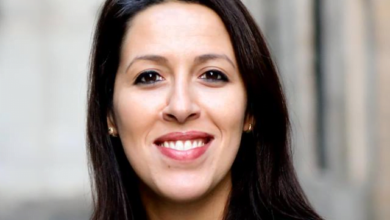Study: « Adapt or die », the challenge for African countries to finance climate change
Though not responsible for global warming, African countries must adapt their economies and their budgets. On average, they are looking to make investments equal to more than 2.8% of their current GDPs, according to the Power Shift Africa report. A rate that is hardly sufficient.
By Ulrich Viany, in Cotonou
As the continent most vulnerable to climate change, Africa has few resources to deal with it. Governments, however, are responding by increasing their spending on adaptation, says think-tank, Power Shift Africa, which published a report entitled « Adapt or Die: An Analysis of African Climate Adaptation Strategies » in February 2022.
“On average, observed countries are looking to make investments of 4.04% of their current GDPs every year,” noted the report which examined the national adaptation plans of seven countries, submitted to the United Nations Framework Convention on Climate Change (UNFCCC), since 2018. These are Ethiopia, Kenya, Liberia, Sierra Leone, South Africa, South Sudan and Togo.
The paper notes that for these developing countries, the annual costs of adaptation could total $300 billion by 2030. The figures range from $90 million per year for Sierra Leone to $6 billion for Ethiopia.
Climate change impacts are diverse and alarming. In Ethiopia, for example, it could result in floods, record droughts and displacement. In Southern Sudan, much of the land could dry up by the end of this century, and the heavily populated coastal areas of Liberia could flood.
The ratio between available funds and high funds needed
To cope with disasters, Ethiopia’s national adaptation plan calls for a series of actions to be implemented by 2030 at an estimated cost of $90 billion, or $6 billion per year. This is equivalent to about 5.6% of current GDP.
The adaptation expenditures of African countries are far from covering their needs. According to the Power Shift Africa document, which cites another report, published in 2017, the financial gap between what is available and what is needed for meaningful adaptation is at 80% in Africa. Thus, where one hundred dollars should be invested, the African continent can only provide twenty. Unfortunately, « more recent figures suggest that this gap is widening, » the report says. Given this situation, a drastic increase in funding seems inevitable. But African countries cannot do this by themselves. “None of the countries considered
in this analysis had sufficient resources even for the most urgent adaptation priorities. They rely on international assistance, in the case of Togo for as much as 80% of its public investments,” says Power Shift Africa.
Towards increased funding
The Power Shift Africa report recommends that the rich polluting world, which caused climate change in the first place, assume responsibility, and support the vulnerable communities and countries adapt, as they committed to do at the last Climate Conferences (COP). « The rich world must stop sidelining the needs of the vulnerable if the world is going to have an equitable approach to dealing with the climate emergency,” the report says. Adaptation must not fail for want of finance or technology, it adds in brief.
The target of the recommendations: the COP 27, which will be held from November 6 to 18 in Sharm-el-Sheikh, Egypt. The report states that the incoming Egyptian COP27 Presidency and the African governments together with other developing countries, must urgently begin to frame COP27 as the “Adaptation COP” to help undo the historic imbalance of the UNFCCC process.
“Sharm-el-Sheikh must help deliver an elaborated outline of the elements for the global goal on adaptation… Massive new funds must be injected into poor and vulnerable countries to help them cope with the increasing impacts of climate change. The COP27 should result in a clear call to developed countries to scaling up annual financing in the period 2021-2025 and accelerate the implementation of the Climate Finance Delivery Plan.
« Sharm-el-Sheikh must provide a detailed overview of the elements to achieve the global goal on adaptation… Funds must be massively injected into the most vulnerable economies to help them cope with the growing impacts of climate change », the document pleads. In conclusion, the COP 27 must result in a clear call to rich countries to increase their annual funding for the next few years and accelerate the implementation of national plans for adaptation to climate change.






